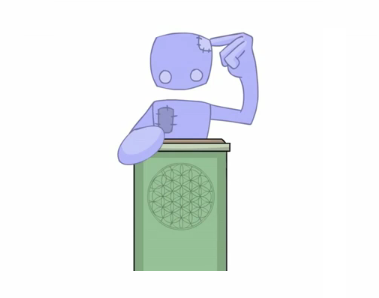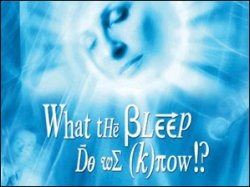About Theosophy and The Theosophical Society
Theosophy (from Greek θεοσοφία theosophia, from θεός theos, divine + σοφία sophia, wisdom; literally "divine wisdom"), refers to systems of esoteric philosophy concerning, or investigation seeking direct knowledge of the mysteries of being and nature, and the nature of divinity.
Theosophy is considered a part of the broader field of esotericism, referring to hidden knowledge or wisdom that offers the individual enlightenment and a spiritual salvation. The word esoteric dates back to the 2nd century CE. The theosophist seeks to understand the mysteries of the universe and the bonds that unite the universe, humanity and the divine. The goal of theosophy is to explore the origin of divinity and humanity, and the world. From investigation of those topics theosophists try to discover a coherent description of the purpose and origin of the universe.
The Theosophical World View
The Theosophical Society, while reserving for each member full freedom to interpret those teachings known as Theosophy, is dedicated to preserving and realizing the ageless wisdom, which embodies both a world view and vision of human self-transformation.
This tradition is founded upon certain fundamental propositions.
The Universe and all that exists within it are one interrelated and interdependent whole.
Every existent being--from atom to galaxy--is rooted in the same universal, life-creating Reality. This Reality is all-pervasive but it can never be summed up in its parts, since it transcends all its expressions. It reveals itself in the purpseful, ordered, and meaningful processes of nature as well as in the deepest recesses of the mind and spirit.
Recognition of the unique value of every living being expresses itself in reverence for life, compassion for all, sympathy with the need of all individuals to find truth for themselves and respect for all religious traditions. The ways in which these ideals become realities in individual life are both the priveliged choice and the responsible act of every human being.
Central to the concerns of theosophy is the desire to promote understanding and unity among people of all races, nationalities, philosophies, and religions. Therefore, all people, whatever their race, creed, sex, nationality, or color, are invited to participate equally in the life and work of the Society. The Theosophical Society imposes no dogmas, but points toward the source of unity behind all differences. Devotion to truth, love for all living beings, and commitment to a life of active altruism are the marks of the true Theosophist.
Theosophy - What is it?
Some frequently asked questions about Theosophy
What is Theosophy?
To answer this question we need to distinguish between modern Theosophy and ancient or timeless Theosophy. Timeless Theosophy, also called by many names such as the "Wisdom Tradition" and the "Perennial Philosophy," is a tradition found in human cultures all over the world and at all times in history. It is the basis of the inner or mystical side of many philosophies and cultures. Modern Theosophy is a contemporary statement of that tradition as set forth through the Theosophical Society.
What is the Theosophical Society?
The Theosophical Society is an organization founded in New York City in 1875 to investigate the nature of the universe and humanity's place in it, to promote understanding of other cultures, and to be a nucleus of universal brotherhood among all human beings. Today the Society has branches in some seventy countries, with its international headquarters in India.
What does this Wisdom tradition teach?
The Three basic ideas of Theosophy are (1)-the fundamental unity of all existence, so that all pairs of opposites--matter and spirit, the human and the divine, I and thou--are transitory and relative distinctions of an underlying absolute Oneness, (2)-the regularity of universal law, cyclically producing universes out of the absolute ground of being, and (3)-the progress of consciousness developing through the cycles of life to an ever-increasing realization of Unity.
That sounds abstract--what do these ideas mean in daily life and how do we live by them?
These abstract ideas have some very specific and practical implications, for example the following:
The world we live in is basically a good place, to be used wisely, to be treasured, and to be honored: Rejoice in life.
We develop as human beings, not by forsaking the world, but by cooperating with nature to preserve and perfect it: Respect the environment and be ecologically responsible.
You and I are different expression of the same life, so whatever happens to either of us happens to both of us--our well-being is linked:Help your neighbor, and thereby help yourself.
Disharmony and evil are the result of ignorance and selfishness:Live in harmony and goodness so as to teach others by your life as well as by your words.
What specific doctrines to Theosophists believe in?
The Theosophical Society is non-dogmatic, and Theosophists are encouraged to accept nothing on faith or on the word of another, but to adopt only those ideas that satisfy their own sense of what is real and important. Theosophy is a way of looking at life rather than a creed. Modern Theosophy, however, presents ideas like the following for our consideration, and many Theosophists hold these ideas, not as fixed beliefs, but as a way of looking at life that explains the world as they experience it:
* reincarnation
* karma (or moral justice),
* the existence of worlds of experience beyond the physical,
* the presence of life and consciousness in all matter,
* the evolution of spirit and intelligence as well as of physical matter,
* the possibility of our conscious participation in evolution,
* the power of thought to affect one's self and surroundings,
* the reality of free will and self-responsibility,
* the duty of altruism, a concern for the welfare of others, and
* the ultimate perfection of human nature, society, and life.
What Practices to Theosophists follow?
All members of the Theosophical Society decide what practices and manner of living are appropriate for them, but many Theosophists follow a certain regimen of life that is implied by Theosophical ideas like those above. They meditate regularly, both to gain insight into themselves and as a service to humanity. They are often vegetarians and avoid the use of furs or skins for which animals are killed. They do not use alcohol or drugs (except under a doctor's order). They support the rights of all human beings for fair and just treatment, being therefore supporters of women's and minority rights. They respect difference of culture and support intellectual freedom. Theosophists are not asked to accept any opinion or adopt any practice that does not appeal to their inner sense of reason and morality.
What do Theosophists do in their meetings?
Meetings typically consist of a talk followed by discussion of the study topic. Theosophy has no developed rituals, although meetings may be opened and closed by brief meditations of the recitation of short texts, and some groups use a simple ceremony for welcoming new members. There are no privileged symbols or icons in Theosophy, but various symbols from the religious traditions of the world are honored, such as the interlaced triangles and the ankh (the Egyptian symbol of life). There are no clergy, or leaders, other than democratically chosen officers.
How do Theosophists regard churches and religions?
Theosophy holds that all religions are expression of humanity's effort to relate to one another, to the universe around us, and to the ultimate ground of being. Particular religions differ from one another because they are expression of that effort adapted to particular times, places, cultures, and needs. Theosophy is not itself a religion, although it is religious in being concerned with humanity's effort to relate to ultimate values. In recognition of the value of religious practice and devotion as vehicles for self-transformation, Theosophy recommends, as Annie Besant exhorted, that one should "live one's religion, not leave." Individual Theosophists profess various of the world's religions--Christian, Jewish, Moslem, Zoroastrian, Hindu, Buddhist. Some have no religious affiliation. The Society itself is an expression of the belief that human beings, however diverse their backgrounds, can communicate and cooperate. As such the Society provides an ideal platform for interfaith dialogue and mutual respect.
What is the message of Theosophy today?
The problems humanity faces--war, overpopulation, exploitation, prejudice, oppression, greed, hate--are just the symptoms of a diseas. We need to treat the symptoms, but to cure the dis-ease, we need to eliminate its cause. The cause of the disease is ignorance of the truth that we are not merely unconnected, independent beings whose particular welfare can be achieved at the expense of the general good. The cure is the recognition that we are all one with each other and with all life in the universe.
Despite the superficial cultural and genetic differences that divide humanity, we are remarkably homogeneous--physically, psychologically, intellectually, and spirituality. Biologically, we are a single human gene pool, with only minor local variations. Psychologically, we respond to pleasure and pain in the same way. Intellectually, we have the same curiosity about our place in the universe and the same power to discover truth. Spiritually, we have a common origin and a common destiny.
We are part and parcel of the totality of existence stretching from this planet Earth to the farthest reaches of the cosmos in every conceivable dimension. When we realize our integral connection with all other human beings, with all other life forms, with the most distant reaches of space, we will realize that we cannot either harm or help another without harming or helping ourselves. We are all one.
To know this is to be healthy in body, whole in mind, and holy in spirit. That ideal is expressed in the following words, known as the "Universal Invocation," written by Annie Besant, the second international President of the Theosophical Society:
O hidden Life, vibrant in every atom,
O hidden Light, shining in every creature,
O hidden Love, embracing all in oneness,
May all who feel themselves as one with thee
Know they are therefore one with every other.
 The Power of Thoughts
The Power of Thoughts
Discover the power that your Thoughts and Emotions have upon you. Learn how you can empower yourself to live in the moment by controlling your thoughts and emotions, and guiding yourself the way that you want to be guided, rather than allowing modern society to tell you how to feel and what to think.
Spirit Science - Thoughts
Spirit Science Video Series
 What The #$*!
What The #$*!
Do We Know?!
"What The Bleep Do We Know?!" is a radical departure from convention. It demands a freedom of view and greatness of thought so far unknown, indeed, not even dreamed of since Copernicus. It's a documentary. It's a story. It's mind-blowing special effects. This film plunges you into a world where quantum uncertainty is demonstrated - where neurological processes, and perceptual shifts are engaged and lived by its protagonist - where everything is alive, and reality is changed by every thought.
Thoughts Create Reality - Water Molecules
The Law of Attraction - Article by Steve Pavlina
The Theosophical Society of America
Theosophy Library Online
Sacred Texts Archives on Theosophy
The Thosophical Society International Headquarters
Theosophy and Madame Blavatsky
Theosophy and Art
Modern Theosophy
Blavatsky Study Center
The Blavatsky Trust
Theosophical History
United Lodge of Theosophists
Theosophy Online
Modern Theosophical Movement
Theosophy Northwest
Theosophy Watch
Theosophy Trust Memorial Library
Daily Theosophy
The Roots of The New Age - Esotericism and Occult in the Western World
The Roots of The New Age
Lucis Trust